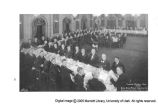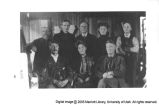| Title |
UPA A Century Later |
| Subject |
Newspapers; Newspaper publishing; Journalism |
| Creator |
Utah Press Association |
| Publisher |
Utah Press Association |
| Contributors |
Cornwell, J. M. |
| Date |
1996 |
| Type |
Text |
| Format |
application/pdf |
| Identifier |
PN4844.U8 U8 1996 |
| Source |
Original Book: UPN A Century Later |
| Language |
eng |
| Rights Management |
Digital image copyright 2005, University of Utah. All rights reserved. |
| Holding Institution |
University of Utah |
| Source Physical Dimensions |
14 cm x 21.5 cm |
| ARK |
ark:/87278/s6319w0z |
| Setname |
uu_upa |
| ID |
416710 |
| Reference URL |
https://collections.lib.utah.edu/ark:/87278/s6319w0z |












































































































































































































































































































































































































































































































































































































































































































































